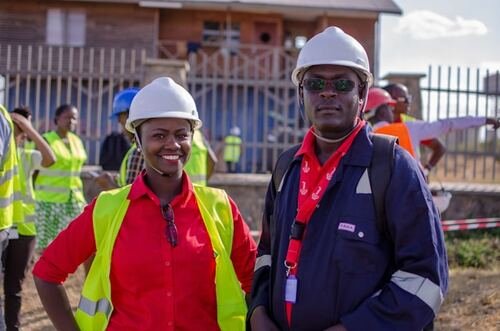As Kenya shifts towards sustainable energy solutions, solar power has emerged as a significant focus for the country’s growth. Understanding the importance of skilled professionals in this arena, technical training in solar installation is becoming a crucial endeavor.
With a growing demand for sustainable energy and skilled technicians, technical courses are instrumental in equipping individuals with the necessary skills to drive Kenya’s energy transformation. These programs not only empower individuals but also enhance the country’s overall competency in renewable energy sectors.
The Need for Solar Training
The demand for solar energy in Kenya is increasing rapidly. As more households and businesses opt for solar solutions, there is a growing need for qualified solar installers who can ensure efficient and safe solar energy utilization.
Training programs specializing in solar installation provide hands-on learning experiences, enabling trainees to grasp the intricacies of solar systems. These courses often cover installation procedures, maintenance practices, and safety protocols essential for achieving professional standards.
By integrating practical components with theoretical knowledge, trainees gain the confidence and skills required to meet the rising demand for solar energy solutions effectively.
Broader Technical Training Scope
Beyond solar installation, solar installer course in Kenya programs are expanding to cover a wide range of disciplines, including mechanical and electrical engineering. This comprehensive training approach aims to produce well-rounded professionals equipped for various technical roles.
The curriculum often includes a blend of advanced technologies and traditional techniques, preparing students for diverse industry requirements. Such training equips professionals with the adaptability needed in today’s rapidly evolving job markets.
These well-structured programs aim not only to provide immediate job opportunities but also to foster long-term career growth and innovation in the technical field. By providing a robust foundation in multiple disciplines, these courses contribute significantly to the overall development of technology-driven industries in Kenya.
Enhancing Economic Growth
Technical training coupled with solar energy development plays a pivotal role in Kenya’s economic advancement. By generating a skilled workforce, these initiatives help in reducing unemployment rates and boosting economic productivity.
Solar energy projects create employment opportunities not only for installers but also for manufacturers, designers, and support staff involved in the solar energy supply chain.
Building Sustainable Futures
Sustainable energy solutions are essential for Kenya’s future, and training programs are crucial in building this future. Through specialized courses, individuals are better prepared to tackle environmental challenges and contribute to sustainability goals.
These programs are designed to foster awareness and understanding of environmental impacts and renewable energy benefits. This knowledge is critical as Kenya continues to embrace sustainability in its developmental strategies. The skills acquired empower individuals to implement and advocate for sustainable practices within their communities, fostering an environmentally-conscious society.
Supporting Technological Innovation
As technology evolves, technical training facilitates innovation by equipping learners with cutting-edge tools and methodologies. These programs encourage creative problem-solving and innovation, critical for addressing modern-day challenges.
In particular, solar technology training helps develop innovative solutions for energy efficiency and management. This adaptability is vital in supporting technological advancements and ensuring competitiveness in the global market. The successful integration of these innovations into local industries can lead to significant improvements in resource management and operational efficiency.
Conclusion
The emphasis on empowering Kenya with solar and technical training excellence is paving the way for a more sustainable and economically robust future. With targeted training programs, Kenya is well on its way to revolutionizing its energy sector while supporting broader technological and economic growth.
By continuing these efforts, Kenya stands to benefit from a well-equipped workforce ready to tackle the future’s energy and technological challenges. Embracing these initiatives could well represent a pivotal shift towards a brighter and more sustainable future for the nation.




